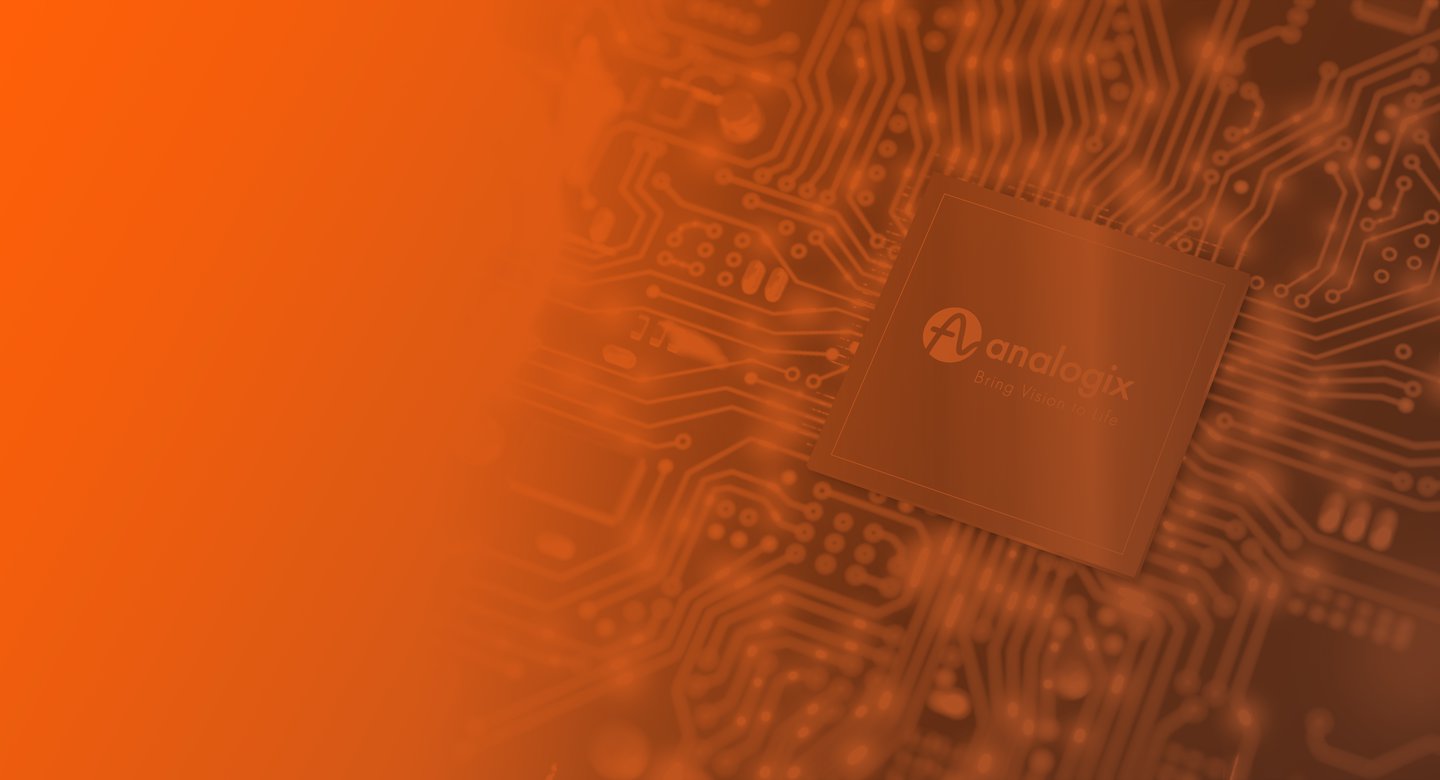
- Home
- Technologies
- Interface Connectivity

DisplayPort™
Analogix pioneered the development of the DisplayPort standard, an innovative, packetized digital interface for high-resolution video and audio that was developed by the Video Electronics Standards Association (VESA).
SlimPort® is Analogix’s brand of interface connectivity semiconductor solutions for DisplayPort™, with applications in VR/AR head mounted displays, mobile devices – smartphones, tablets, notebooks, 2-in-1 convertible laptops, cameras – and accessory products such as docking stations, cables, and adapters. SlimPort-branded products are compliant with DisplayPort, Mobility DisplayPort (MyDP™) and the DisplayPort Alternate Mode standards.
USB: USB-C™
USB-C™ brings together the desired features of a unified connector, merging data, audio, video, and power into one interface. Its robustness, flexibility, and ease of use provide unprecedented opportunities for end-users, designers, and manufacturers.
Our technology supports the DisplayPort™ over USB-C™ protocol formally known as the DisplayPort Alt Mode™, USB data, and USB Power Delivery through fully integrated, single-chip, low-cost solutions for smartphones, tablets, and notebooks.
10 Gbps Signals
We pioneered a re-timer technology that compensates channel loss resulted from transmitting high-speed data over a cable or printed-circuit-board and ensures high-quality 10G signals for the latest next generation notebooks, desktop PCs, smartphones, and active VR cables.
Power Delivery (PD)
The PD controller is the brain of the USB-C™ interconnection. Our technology enables USB-C charging for latest generation notebooks, desktops, and 2-in-1 PCs with:
- Extended Messaging - enables faster PD firmware updates (PDFU) and provides an efficient exchange of security certificates;
- Fast Role Swap - allows a PC accessory to change modes from sourcing to sinking power quickly, preventing data corruption during an unforeseen power source disconnect;
- Native USB-C port controller interface (TCPCI) for ease of integration with the existing USB-C port manager (TCPM).
Connector + Cable orientation (CC)
Our standardized CC detection technology:
- Detects attach of USB ports
- Resolves cable orientation and twist connections to establish USB data bus routing
- Establishes data roles between two attached ports
- Discovers and configures VBUS: USB-C Current modes or USB Power Delivery
- Configures VCONN, a 5V @ 1W power supply used to power the integrated circuit within an electronically marked USB Type-C cable.
- Discovers and configures optional Alternate and Accessory modes

HDMI
HDMI® Specification 2.1 is the most recent update of the HDMI specification. Our ultra-low power HDMI technology is used in a wide product portfolio which includes HDMI bridges, fast-port switches, and signal conditioners and it is compliant to HDMI 2.1/ 2.0/ 1.4/ 1.3 standards:
- Higher video resolutions support a range of high resolutions and faster refresh rates including 8K60Hz and 4K120Hz for immersive viewing and smooth fast-action detail
- Dynamic HDR support with extended metadata packets
- Fixed Rate Link (FRL)
- Variable Refresh Rate (VRR) reduces or eliminates lag, stutter and frame tearing for more fluid and better detailed gameplay.
- Quick Frame Transport (QFT) reduces latency for smoother no-lag gaming, and real-time interactive virtual reality
- TMDS Character Error Detection (CED) based on running disparity check;
- supports the latest HDCP 2.2/1.4 content protection
- provides excellent jitter-cleaning and signal recovery capabilities for long-reach applications with Continuous Time Linear Equalization (CTLE) and Digital Feedback-Loop Engine (DFE).
CoolHD™
Displaying mobile video on HDMI TVs used to be a drain on battery charge, so we developed CoolHD™, a technology that recovers waste energy to enable zero-power HDMI connections.

MIPI
MIPI-DSI is a common or shared high-speed signaling interface and a viable display interface candidate for the majority of today’s mobile, virtual reality (VR) and augmented reality (AR) applications.
Our technology supports the latest versions of MIPI DSI, D-PHY and C-PHY specifications in order to drive the industry’s latest displays for mobile and AR/VR applications, enabling today’s and tomorrow’s high-performance AR/VR displays at 4Kx2K resolutions and120 FPS.